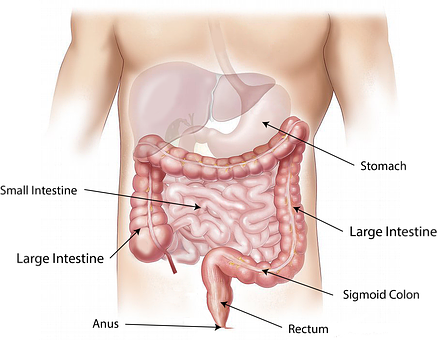Digestive System
Meckel's Diverticulum: What are its Symptoms, Causes, and Treatment?
By S.I. (staff writer) , published on April 10, 2023

Medicine Telehealth Health intestines diverticulum
What is Meckel's Diverticulum?
Meckel's Diverticulum is a congenital disorder that affects the gastrointestinal tract [1]. It occurs when a small pouch, or diverticulum, forms in the wall of the small intestine. This disease affects 2% population all over the world [2]. Failure of the vitelline duct to obliterate results in the outpouching of a part of the small intestine. It is the most common gastrointestinal congenital anomaly.
The condition is generally diagnosed in childhood and can cause various symptoms, including pain and nausea. In many cases, Meckel's Diverticulum can be treated with medication or minimally invasive procedures.
Early diagnosis and treatment can help prevent the discomfort caused by the disease itself and its associated complications. It is important to speak to the healthcare provider if you find any signs and symptoms of Meckel’s diverticulum in your loved ones.
What are the Symptoms of Meckel's Diverticulum?
Meckel's Diverticulum is a true diverticulum of the gastrointestinal tract, where a pouch of tissue forms on the small intestinal wall. It can cause a variety of symptoms, ranging from mild to severe. Common symptoms include:
- abdominal pain
- nausea
- vomiting
- diarrhoea
- rectal bleeding
- fever
- weight loss,
- malnutrition.
Severe complications may include intussusception, obstruction, and perforation of the bowel. It is important to be aware of these symptoms and seek medical attention if they persist. However, almost 16% of patients with Meckel’s Diverticulum are asymptomatic [3].
What are the Causes of Meckel’s Diverticulum?
The incomplete closure of the omphalomesenteric duct during fetal development is the cause of Meckel’s diverticulum. The failure of the vitelline duct to close during embryonic development, an inherited genetic mutation, or trauma to the abdomen during childbirth can be the reasons for its development.
Other possible causes include environmental factors and abnormalities in the structure or functioning of the digestive tract. Risk factors include prematurity, a family history of Meckel's Diverticulum, and certain genetic conditions such as Down Syndrome.
Treatment Options for Meckel’s Diverticulum:
Meckel's diverticulum is difficult to diagnose [4]. However, any abnormal pain, intestinal bleeding, nausea, and vomiting should help in the diagnosis.
Treatment options for Meckel's diverticulum vary depending on the severity of the condition but may include medications, diet modification, and surgery.
- Medications: such as proton pump inhibitors and antacids may help reduce the symptoms.
- Dietary modifications: such as reducing fiber and fat intake, avoiding certain foods, and increasing water consumption.
- Surgery may be recommended in severe cases or if the diverticulum is causing complications. Surgery is typically done laparoscopically and may involve removing part or all of the diverticulum [5].
References:
1- Meckel's diverticulum (medilib.ir)
2- Meckel's diverticulum in the adult - PubMed (nih.gov)
3- https://www.ncbi.nlm.nih.gov/pmc/articles/PMC1356994/
4- Meckel's Diverticulum | AAFP
5- Meckel's Diverticulum | AAFP
Find articles related to: Medicine Telehealth Health intestines diverticulum
More articles about Digestive System
Back to the Health Tips Index




